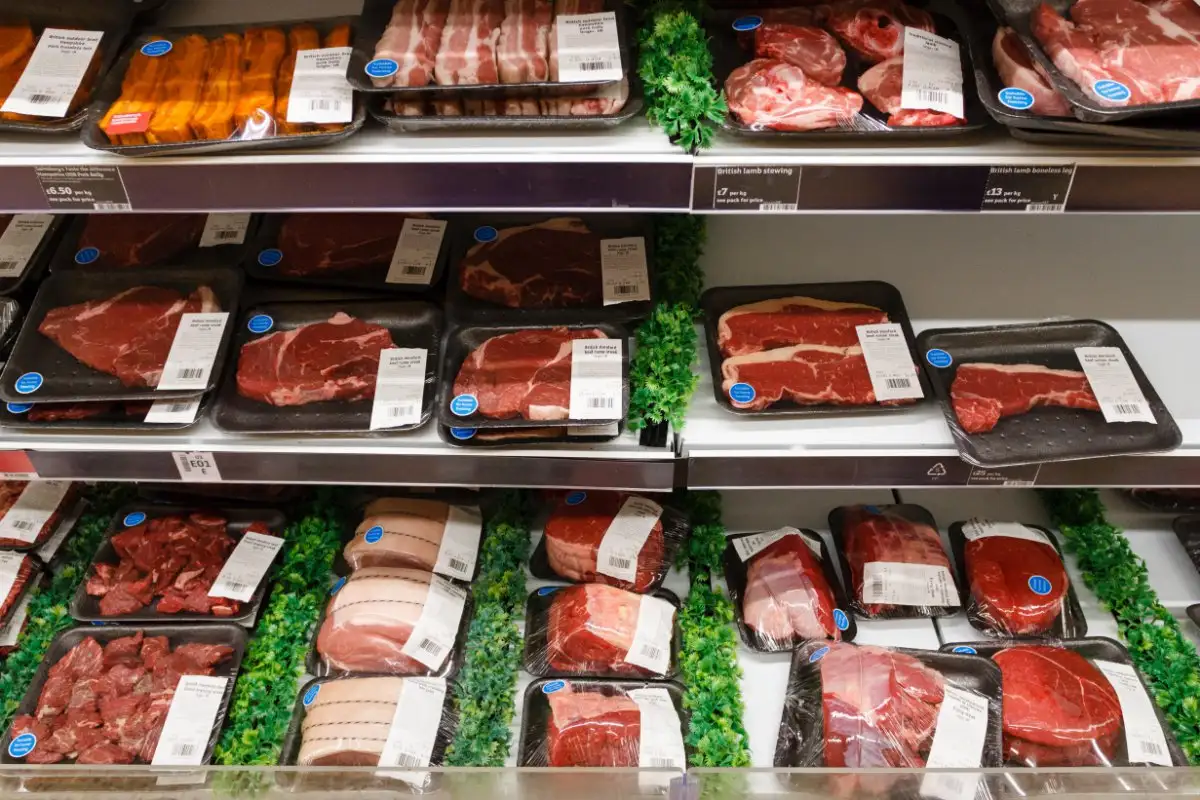EU (Parliament Politic Magazine) – The food packages in Northern Ireland now have special labels that say “not for EU.” This is because of a new agreement called the Windsor framework deal that changed how things work after Brexit. This agreement was made in February to solve problems between the UK and the EU about Northern Ireland. It’s about how things are traded and moved between these places.
To follow this agreement, new labels are being put on certain foods that come from Great Britain to Northern Ireland. The first supermarket to do this is Asda, and they’ve already started using these labels on their own-brand meat products.
Labels on Meat & Dairy Products
Starting in October, all businesses will have to put these labels on meat and some dairy products when they send them to Northern Ireland. Later on, this labeling will also be used in the rest of the UK, but that will happen in two more parts by July 2025.
A new way of labeling things is needed in Northern Ireland. This is because of a plan called the Northern Ireland retail movement scheme. This plan makes it possible to bring packaged things, like food and other products, from Great Britain to Northern Ireland without much trouble.
The labels are like special stickers that go on the products. They help make sure that these things don’t get sent to the European Union (EU), like the Republic of Ireland, after they arrive in Northern Ireland. Different items will need different labels, and some boxes will need labels too. Certain stores in Northern Ireland will also need special signs.
Before, there was an agreement called the Northern Ireland protocol, made in 2019 by Boris Johnson, who was the leader of the UK at that time. This agreement let Northern Ireland follow the EU’s rules for trading goods.
Will The Trade for Ireland Become Smooth?
The agreement was a problem because it made a smooth trading border between Ireland’s island but created a sort of border between Great Britain and Northern Ireland. This made trading things more expensive and complicated.
When things were sent from the rest of the UK to Northern Ireland, they had to be checked, which caused problems and protests from a political party called the Democratic Unionist Party. People who sell things, like the leader of Marks & Spencer, didn’t like the rules of the Northern Ireland agreement. They said the rules were too complicated and not very useful.
Supermarkets, like M&S, before this, told the government they don’t want extra labels on products in Northern Ireland. They said this would make things more expensive for both stores and shoppers.
Some stores worry that they didn’t get enough time to get ready for the new labels that were planned for October. This might mean not all stores follow the new rules right away. But the government recently said it might not make everyone follow the new rules right at the start.
In late July, the Department for Environment, Food and Rural Affairs gave an update. It said that for the first few months of the new plan, they will have ways to help authorized food sellers use the easier path for trading between Great Britain and Northern Ireland.
Read More: Effective Risk Mitigation Approaches: A Closer Look at Supply Chain Disruption in Europe, UK, and US
‘Light Touch’ Approach
Concerns have arisen within the retail industry regarding the insufficient time granted to businesses for adequate preparation toward the upcoming labeling changes. As a result, not all operators are projected to be fully compliant by the approaching October deadline.
Nevertheless, the government has signaled its intention to adopt an initially lenient stance when it comes to enforcing these changes. What implications does the new Northern Ireland Brexit deal hold for businesses?
As an illustration, the most recent guidance released by the government has indicated that in the initial months of the new system, measures will be put in place to ensure that businesses utilizing established trusted trader schemes can take advantage of the new arrangements.
Neil Johnson, a representative of the NI Retail Consortium, an organization that speaks for major supermarkets, has emphasized that the alteration in labeling will not impact the quality of the food. He explains: “Because we are next door to the EU, we have to respect their right to their internal market and this labelling is just an administrative procedure to assist that’’.


